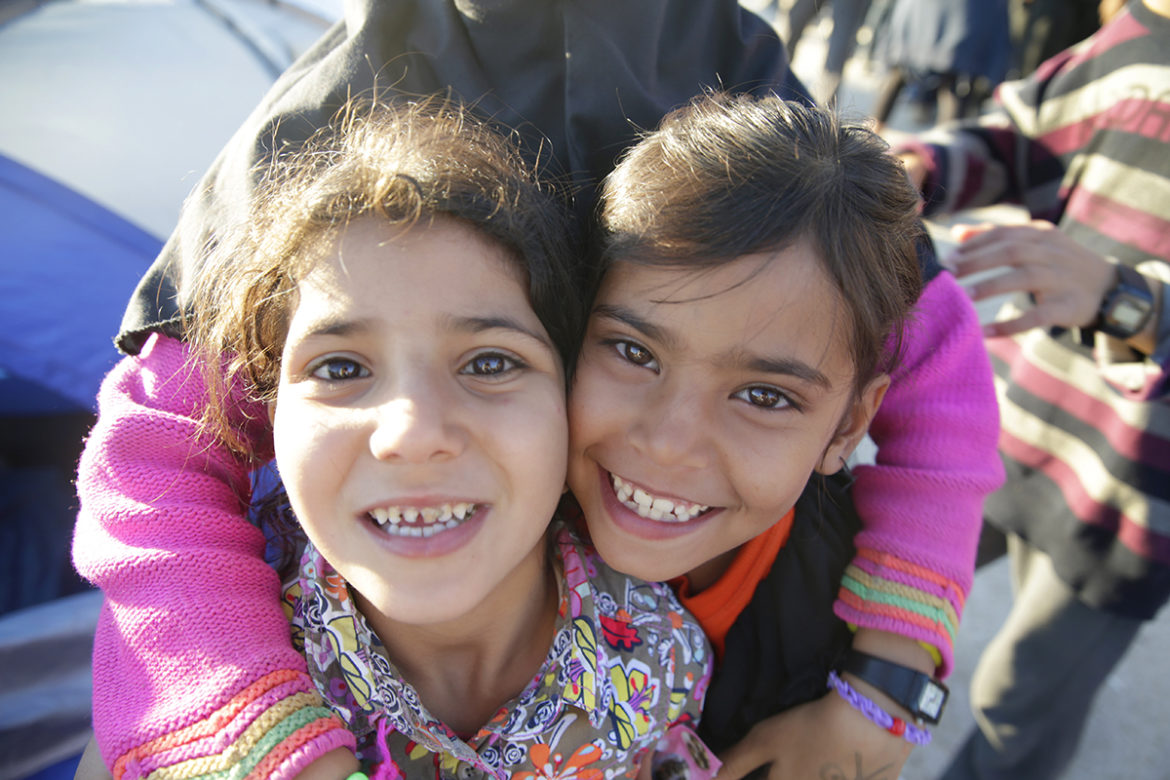The Syrian refugee crisis is the heartbreaking product of a surmounting conflict. While people war against each other, thousands upon thousands families are driven out of their homes and their daily lives. Countries around the world discuss whether to give Syrian refugees a home. Some have opened their doors. Others choose not to. And as world leaders try to decide what to do, some everyday citizens go out to help. Here’s Shannon, from The Woman Formerly Known As Beautiful, and her initial account of volunteering to help Syrian refugees in Greece:
My father cursed me.
I told him I was departing to assist in the Syrian refugee crisis by volunteering and gathering stories in refugee camps on the tiny island of Lesvos, Greece.
(Its 85,000 residents have hosted more than 550,000 refugees since January.)
“I think what you’re doing is irresponsible and dangerous,” my dad said. “You’ve got children to raise.”
I reminded him I wasn’t going to Syria to thrust myself betwixt Bashar al Assad (who might gas me) and ISIS (who might alleviate me of my head). I was going to Europe.
While I understood that my dad loves me and doesn’t want me to perish, I did feel he’d inadvertently hexed me. That now I would die.
Because it makes sense that refugees, who are trying desperately to escape terrorists, would suddenly turn on me, a person who was trying to help them. (That last should be read with irony.)
My first day was spent in Kara Tepe, a camp run by General Manager, Stavros Mirogiannis and Frenchman/Most-Interesting-Man-In-The-World, Fred Morlet of Volunteer’s Co-ordination Team.
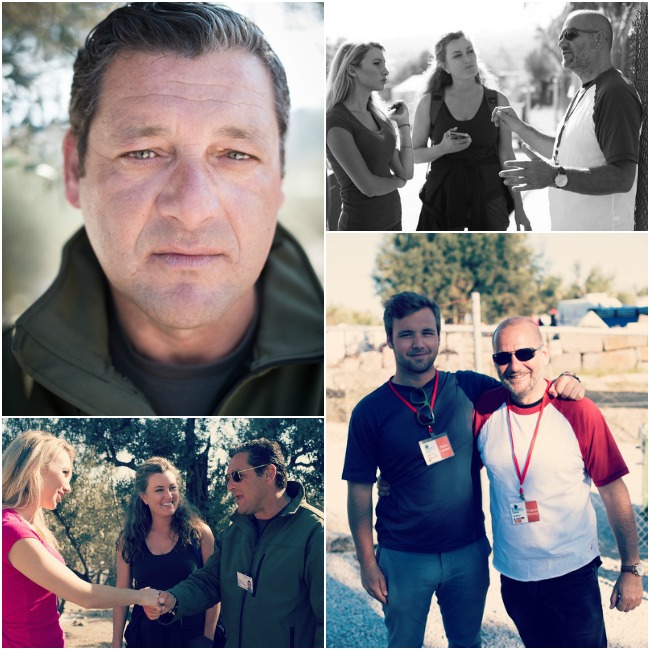
Photos by Jade Beall
I watched my back.
Anyone who looked vaguely swarthy made me nervous, which was pretty much everyone (including myself as I hadn’t tweezed).
Simultaneously I chastised myself for Islamophobia and western privilege/assholicry.
I surprised myself by surviving the day. And not just that, I began to feel quite at home in the camp after helping with meal and clothing distribution.
I realized that these people weren’t refugees their whole lives. That, in fact, they were displaced civil engineers, physical therapists, classical guitarists, elementary school teachers and, I suspect, there was probably a blogger among them.
My team leader, Jamie Grumet, interviewed one young woman who’d had a treacherous journey from Syria, to Turkey and finally across the Aegean Sea into Lesvos.
Her first boat capsized. She floated in the sea for a half hour before she was rescued by the Turkish smugglers. She had to wait for a second boat over three days, hidden in a remote forest without food, water or a fire to keep warm.
She had to wade out to the second boat, when it arrived, in waist deep water. When she finally reached Lesvos she’d lost everything she owned except for the wet clothes on her back.
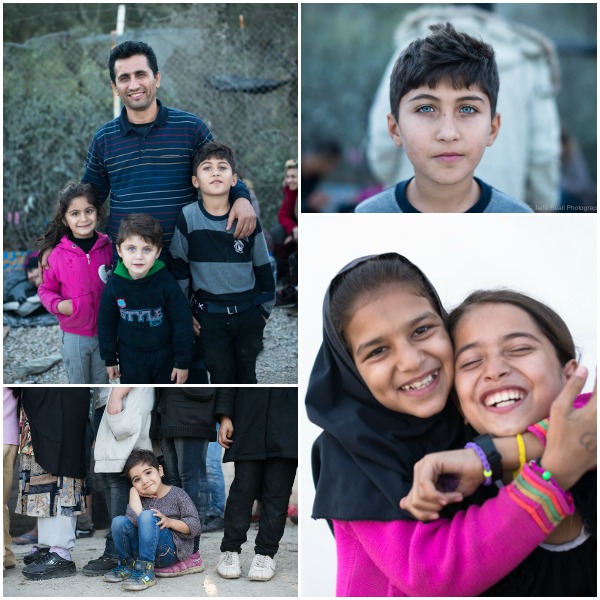
Photos by Jade Beall
Jamie asked, “What would you like people to give you, if you could have anything?” and the young woman replied without hesitation, “Respect.”
Then Jamie asked, “What would you like someone to buy you?” and the woman said, “Make up.”
She just wanted to be a pretty girl again. She just wanted to be normal.
By day’s end I was certain my father’s curse had been undone. I was no longer afraid of the people I’d met in the camp.
Meeting them in person changed them from a news story, an idea I had in my head, to flesh-and-blood humans like me and the family I love.
Only they were trapped in an untenable situation that tested their strength and character each and every day.
Whether I deserved to or not, I was going to live. But would they?
After the Paris tragedies occurred and all of us were on edge, a boat in Molyvos Harbor exploded just one mile from our hotel.
I panicked. Because in that moment it made perfect sense that after Paris I was in the next logical target-rich territory for ISIS.
As I was pondering flying home that second, this gentleman swashbuckled into the hotel lobby from performing sea rescues.
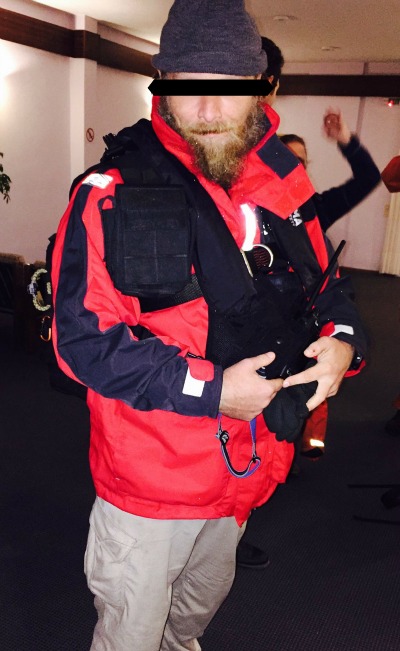
When I mentioned my safety concerns and my father’s curse, he told me I just had to have the will to live and I would live.
As a medic with Doctors Without Borders he’d just returned from spending a month in cave 129 in Afghanistan living with and treating the Taliban.
As ex-special forces he informed me he’d been shot once, stabbed three times, drowned once, had cancer and was still alive. This made me feel like a candy-ass chicken-shit fool.
I decided to live and survived the entire trip.
More importantly, I had the privilege of meeting some of the most amazing people I’ve met in my life–Individuals we call refugees and tireless volunteers who’ve witnessed countless tragedies and brought many people back from the brink.
One NGO aide group is called A Drop in The Ocean, because the volunteers there know there’s an ocean of need that they can’t possibly address, but for the few people they manage to save, they’ve made a massive difference.
The Starfish Foundation — Aid for Refugees in Molyvos, works under a similar principle.
While I was in Lesvos I met volunteers from so many small, newly-minted organizations that are holding the fort because large international organizations (Red Cross where are you??) haven’t mobilized so far.
You can donate to these organizations by following the links above. Every little bit helps. Now I’m off to twist my dad’s arm to make his donation, because I broke the curse!
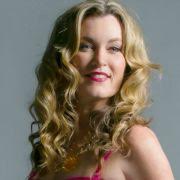 Shannon Bradley-Colleary is a scribe, tart, provocateur on her site The Woman Formerly Known As Beautiful. She’s been published in The Oprah Magazine (aka the mothership), Huffington Post, Purple Clover and Medium. Her naked bottom can be found on The Today Show and HuffPo Live. She’s been interviewed on NPR twice and is in love with Neal Conan. Her book, Married Sex: Fact & Fiction has old boyfriends wishing they’d asked her to marry them.
Shannon Bradley-Colleary is a scribe, tart, provocateur on her site The Woman Formerly Known As Beautiful. She’s been published in The Oprah Magazine (aka the mothership), Huffington Post, Purple Clover and Medium. Her naked bottom can be found on The Today Show and HuffPo Live. She’s been interviewed on NPR twice and is in love with Neal Conan. Her book, Married Sex: Fact & Fiction has old boyfriends wishing they’d asked her to marry them.

